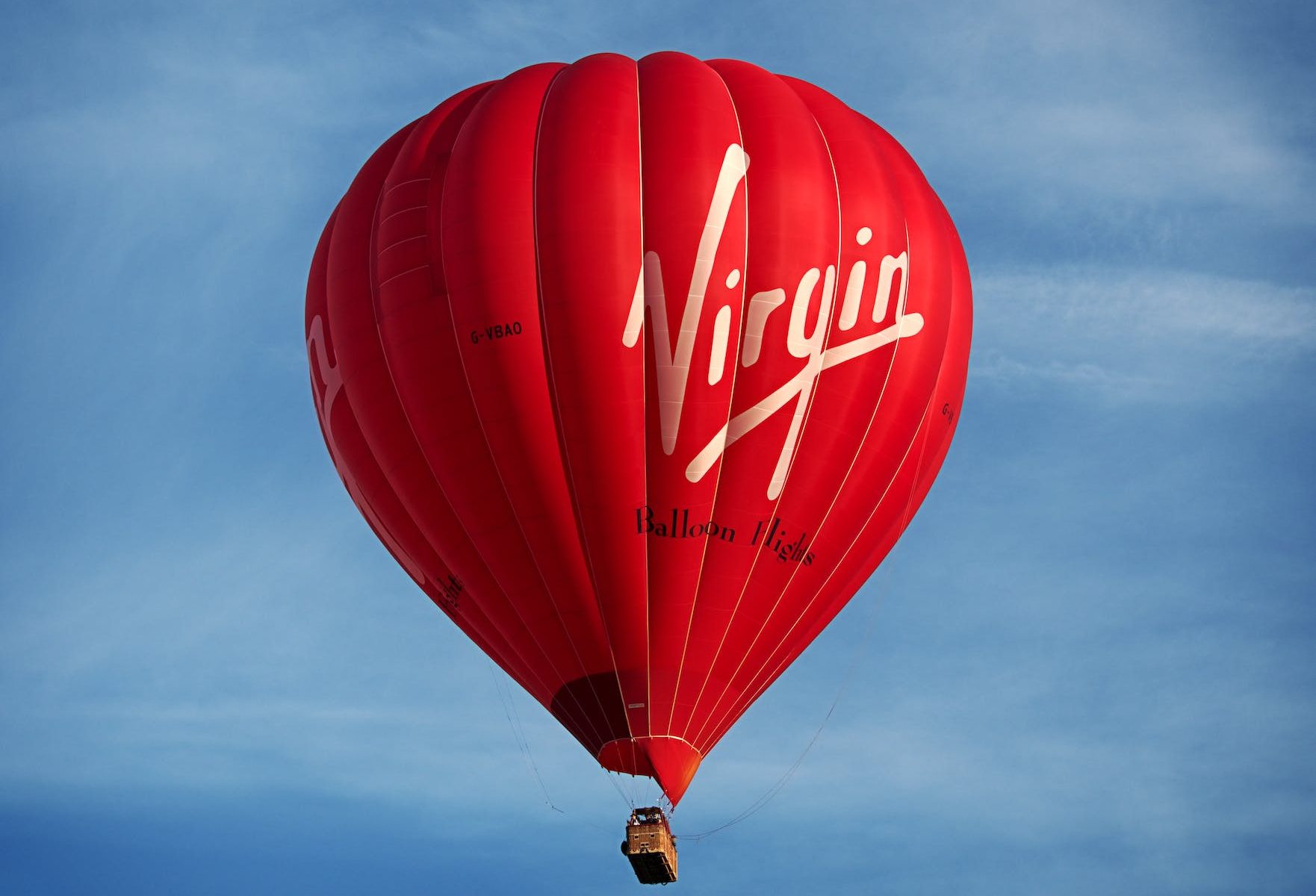Richard Branson is known for taking risks in his business ventures.
He is the founder of the Virgin Group, which controls over 400 companies and is involved in a wide range of industries, including music, travel, and transportation.
Branson is also known for his adventurous spirit, having made several high-profile attempts at world records in hot air ballooning and other pursuits. This tendency to take risks has been a key factor in his success as an entrepreneur.
Known for his unconventional and innovative approach to business, it often involves taking risks that others may not be willing to take.
For example, he started Virgin Atlantic airline in the 1980s, which was a risky move as the industry was dominated by established players, but he was able to make it a success.
Branson took this venture on because he believed that the mere attempt was part of the key to the success. Branson’s interests and passion also facilitate him being able to pursue his passions and grow his companies.
Taking risks has often led to competitive advantage and created new opportunities for Virgin group growth. The establishment of Virgin Atlantic airline was a risky venture for several reasons.
The airline industry at the time was already a highly competitive market. There were well-established players such as British Airways, American Airlines and Delta and it was difficult for a new entrant to break into this market and gain a foothold, particularly on the transatlantic routes.
Starting an airline is extraordinarily capital intensive, and requires expertise in navigating complex regulations and the rigorous safety requirements. Despite having no prior experience in the airline industry, Branson pursued a segment that would have proved daunting to others.
Launching a new airline in the 80s didn’t anticipate the likelihood of a recession which in turn made it harder to secure funding, acquire customers and to therefore make a profit. The odds were stacked against success.
Branson’s decision to operate long-haul flights required access to a larger fleet of aircraft with potentially higher operating costs than short-haul flights but also with higher margins. Had this strategy failed, it could have led to more financial troubles if the business model did not prove successful.
Virgin Atlantic, which has since become a major player in the airline industry. The success of the airline being attributed to unique marketing strategies, a focus on customer service and a willingness to take on established competitors in a market that held many obstacles for a newcomer to overcome.
Overcoming the hurdles
Branson marketed his airline as a fresh and exciting alternative to the established players, with a focus on high-quality customer service and a unique brand image. This helped to attract customers who were looking for a different experience from the stodgy predictable experience that they were having with the existing carriers.
By keeping costs low and using innovative methods such as interlining with other airlines and leasing aircraft instead of buying them, Virgin kept prices competitive and remained appealing to price-sensitive customers while still being able to sustain good margins.
Heavy investments in customer service, providing amenities such as comfortable seats, in-flight entertainment and gourmet meals helped to differentiate Virgin Atlantic from its competitors and create a new loyal customer base.
Strategic partnerships with erstwhile competitors like Delta Airlines helped to expand the reach of the brand, attracting customers and increasing revenue.
Virgin Group’s portfolio also leveraged the different lines of the businesses, such as the entertainment division which reduced the risk by weaving travel and transportation into aviation travel, thereby providing a increasingly stable source of revenue streams.
Focus on the customer
The significance of air travel customer service to the success of Virgin Atlantic cannot be overstated.
Branson recognized that customer service was a key differentiator for his airline, and he invested heavily in this area to create a unique and high-quality customer experience.
More comfortable seating in economy class seats with more legroom and recline than those of its competitors become a distinguishing factor.
Virgin Atlantic was one of the first airlines to provide in-flight entertainment systems with a wide range of movies, TV shows, and games, which helped to keep passengers entertained and comfortable during long flights.
Virgin Atlantic’s meals were designed to be of a higher quality than those of its competitors. This helped to create a more pleasant and enjoyable flight experience for passengers.
Flight attendants were trained to provide a high level of service and to make passengers feel welcome and comfortable and of course Virgin Atlantic’s Flying Club rewards program helped to create a loyal customer base who were provided frequent flyers with benefits such as lounge access, upgrades, and discounts.
All of these customer service efforts helped to create a positive reputation for Virgin Atlantic, which helped to attract customers who were looking for a different, high-quality experience when compared with others -the customer-centric approach was a major factor leading to the success of the airline.
Taking care of the data
Collecting and utilizing customer data is important for Virgin Atlantic as it helps the airline to better understand and meet the needs of its customers. With this information, the airline can make more informed decisions about its products, services, and marketing strategies.
We can anticipate that for any airline or airline loyalty program there are a number of opportunities associated with customer master data.
By collecting data on customers’ preferences and purchase history, airlines can tailor their marketing efforts to reach the right customers and prospects with exactly the right marketing message. This helps to increase the effectiveness of campaigns and improves the likelihood of customer engagement.
Customer data can provide insight into which areas of customer service need improvement, and how to provide the best customer experience possible.
This same data are influential in the development of new products and services. For example, it can help the airline to determine what routes, classes, and in-flight amenities are most popular among its customers.
Data analytics sitting astride CMDM and transactional systems can be used to predict customer behavior and identify trends, this might help to anticipate changes in demand and facilitate adaptation. Overall, customer data can be a the most valuable asset for an airline, helping it to improve its products, services, and customer experience, which can lead to a more loyal customer base and increased revenue.
To learn how you can leverage your customer data to enhance how your associates engage with your customers or how you can uplift insights from your customer loyalty and rewards program, consider how the Pretectum CMDM – a SaaS customer master data management system might be of value. Contact us to find out more.


